Description
A Jewish Classic in the Portuguese Language | Um Clássico Judaico em Português
Yerushalmi, Yosef Hayim
Fundação Calouste Gulbenkian, Lisboa, 1989
In-4to., 113 páginas [ii] 25 x 1,2 x 18 cms.
Encadernação em brochura com abas | Softcover in original illustrated wrappers with flaps.
Livro ainda por abrir e, como tal, nunca lido, em perfeito estado de conservação | Wraps in very good overall condition, interior in very good condition, a book never read.
Idioma | Language: Português | Portuguese
PT
Estudo à obra do judeu português sefardita, Samuel Usque, nascido em 1492, que sofreu as vicissitudes e perseguições de que foram alvo os judeus portugueses no período renascentista. Exilado, publicou em Ferrara (Itália) a sua principal obra, “Consolação às Tribulações de Israel” (1553). Este estudo introdutório é magistralmente conduzido por Yosef Hayim Yerushalmi.
Alguns dos aspectos incomuns de Consolaçam ds tribulagoens de Israel (Consolação para as Tribulações de Israel) de Samuel Usque devem ter atingido até mesmo seus primeiros leitores. Embora seja uma obra apaixonadamente judaica, não foi escrita em hebraico, nem mesmo em espanhol (a língua de todos os outros livros judaicos vernaculares impressos na mesma editora), mas em português. Embora esteja manifestamente preocupado com a história e repleto de narrativas de eventos históricos concretos, ela não assume a forma de uma crónica, mas de um diálogo pastoral falado por personagens alegóricos. O título proclama uma mensagem de consolo para todo o povo judeu, mas o prólogo é dirigido explicitamente aos Senhores da Diáspora de Portugal (aos Senhores do Desterro de Portugal). De fato, como veremos, no ponto culminante do drama maior da história judaica com o qual o autor se preocupa, são os cristãos-novos portugueses aos quais é atribuído o papel central. Para compreender essas e outras anomalias aparentes, devemos tentar situar o livro nos vários contextos históricos dos quais emergiu. Para o fundo imediato devemos olhar primeiro, não para a Itália, onde a Consolaçam foi impressa em 1553, mas para a Península Ibérica, onde Usque nasceu e passou por suas experiências formativas.
Para um maior aprofundamento desta obra, referir-se aos seguintes volumes que poderão ser complementares e mesmo imprescindíveis: a) “Consolação às Tribulações de Israel de Samuel Usque. Uma obra-prima da língua e das letras portuguesas. Alguns dos seus aspectos messiânicos e proféticos” de José V. de Pina Martins, e o profundo estudo e obra facsimilada das “Consolação às Tribulações de Israel. Edição de Ferrara, 1553 (2 Volumes)”, de Samuel Usque, com estudos introdutórios por Yosef Hayim Yerushalmi (em inglês) e José V. de Pina Martins (em portguês).
ENG
Study of the Portuguese Sephardic Jew’s work, Samuel Usque, born in 1492, who suffered the vicissitudes and persecutions that the Portuguese Jews in the Renaissance period were bound to suffer. He exiled and published in Ferrara (Italy) his main work, “Consolation to the tribulations of Israel” (1553). This book, reflecting on Usque’s, is an introductory study, masterfully direct by Yosef Hayim Yerushalmi.
Some of the unusual aspects of Samuel Usque’s Consolaçam ds tribulagoens de Israel (A Consolation for the Tribulations of Israel) must have struck even its first readers. Although it is a passionately Jewish work, it was not written in Hebrew, nor even in Spanish (the language of all the other vernacular Jewish books printed at the same press), but in Portuguese. While it is manifestly preoccupied with history and filled with narratives of concrete historical events, it does not take the form of a chronicle, but of a pastoral dialogue spoken by allegorical characters. The title proclaims it a message of consolation for the entire Jewish people, yet the prologue is addressed explicitly to the Gentlemen of the Diaspora of Portugal [“…aos Senhores do Desterro de Portugal”]. Indeed, as we shall see, in the culmination of the larger drama of Jewish history with which the author is concerned, it is the Portuguese New Christians (“cristãos-novos” in Portuguese) who are assigned the pivotal role. In order to comprehend these and other apparent anomalies, we must try to situate the book within the several historical contexts out of which it emerged. For the immediate background we should look first, not to Italy, where the Consolaçam was printed in 1553, but to the Iberian Peninsula, where Usque was born and underwent his formative experiences.
For a deepening of this work, refer to volumes that can be complementary and even indispensable: a) “Consolation to the tribulations of Israel of Samuel Usque. A masterpiece in Portuguese language and of Portuguese Literature. Some of its Messianic and prophetic aspects” by Jose V. de Pina Martins, and the profound study and fac-simile book “Consolation to the tribulations of Israel”, the 1553 original Ferrara Edition (2 Volumes), by Samuel Usque, with introductory studies by Yosef Hayim Yerushalmi (in English) and Jose V. de Pina Martins (in Portuguese).


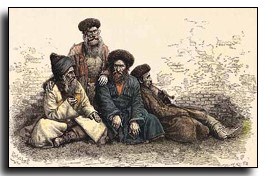

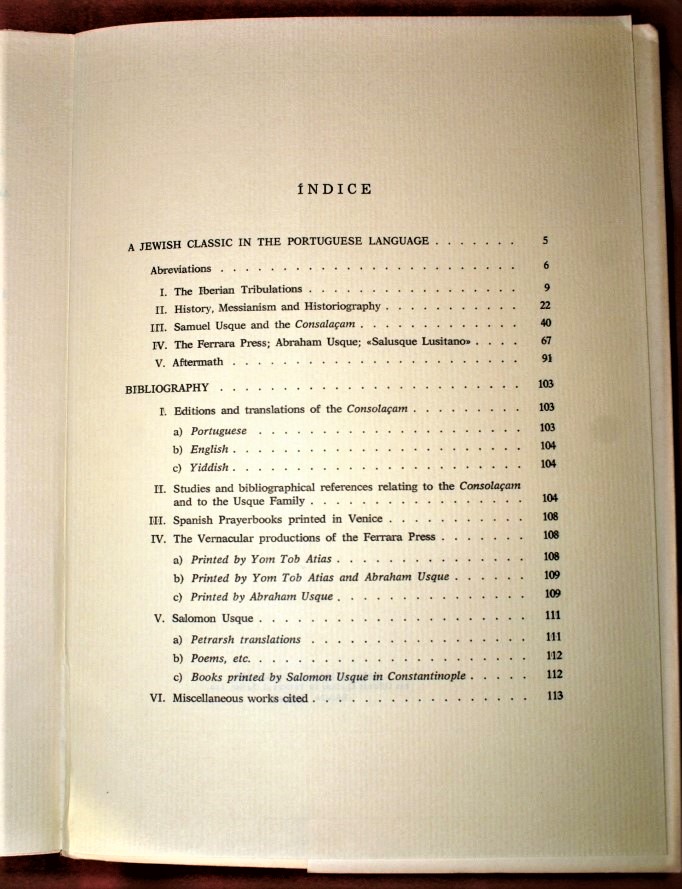
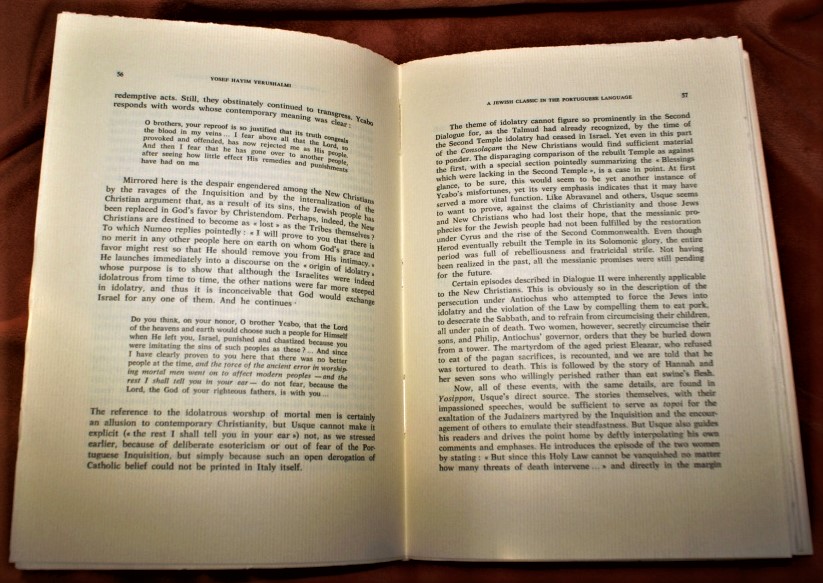
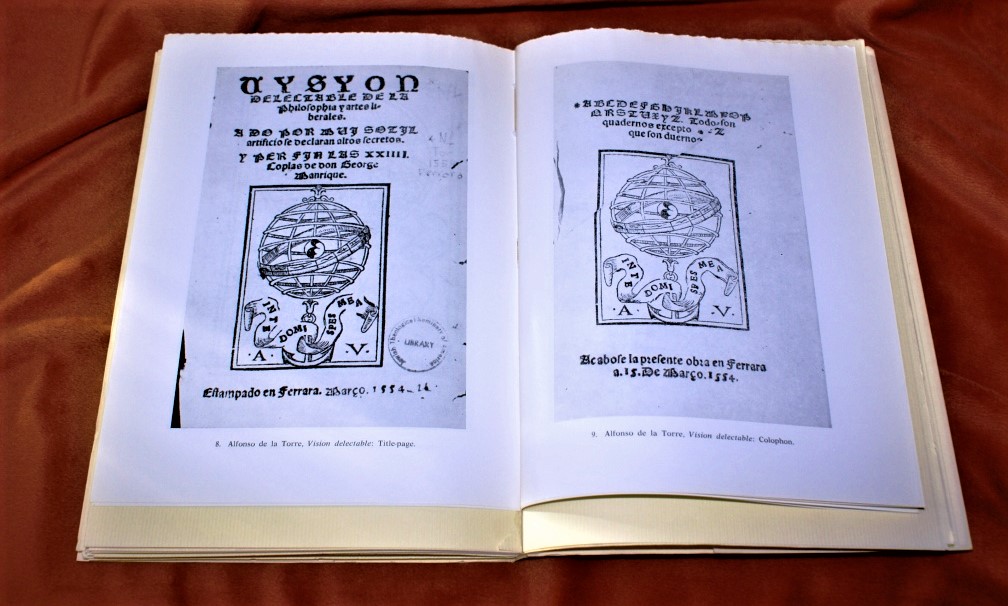

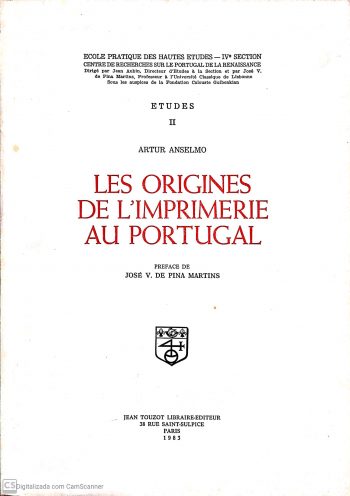
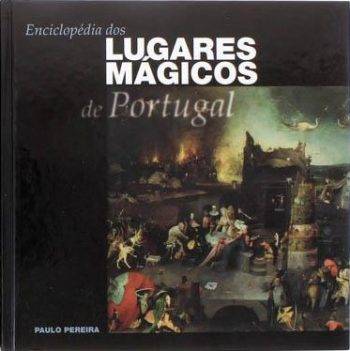
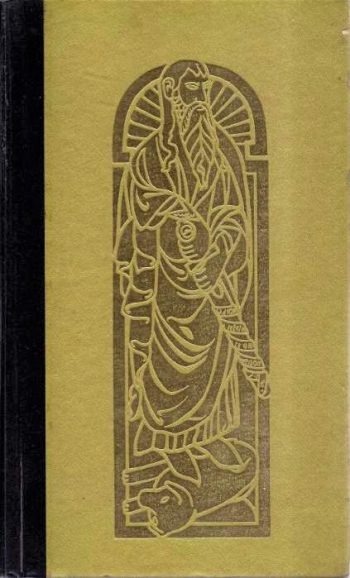
Reviews
There are no reviews yet.